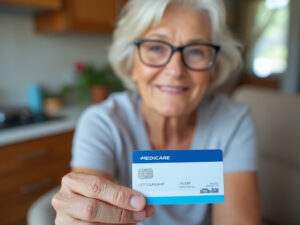Now that we have the basics covered on senior care and how to remain safe at home as you age, it’s time to delve into how seniors can maintain optimum quality of life at home.
Exercise and Remaining Active Plays an Important Role in Overall Senior Home Care
Exercise is important for maintaining good health and wellbeing for anyone. Safety in exercise is also key, especially for seniors who may be at higher risk for injury or have specific medical or physical limitations. There are many options for practicing safe exercise. One option is to hire a personal trainer, trained to work specifically with seniors to come to your home and work with you. A less pricey option would be to attend a group fitness class designed specifically for seniors. These classes are a great way to keep active and meet people, engaging both your body and mind. They are often offered at large health clubs as well as local recreational or community centers.
Strength training and low impact aerobics provide many benefits, as do programs such as Tai Chi, which improves balance and has been used in many fall prevention programs. Another excellent form of exercise for seniors at home is taking simple walks. Also beneficial is the fresh air and social time. Find a walking buddy, perhaps it’s a neighbor, friend from a club you belong to, family member or home health aide or companion. Before beginning any fitness routine, consult your doctor. Figure out what works best for you and do something you enjoy, which will make it sustainable.
Remaining active plays an important role, both physically and mentally, in overall senior care at home. Keeping your brain fit can provide protection against age-related cognitive changes, memory loss and possibly even dementia. There are a number of brain fitness programs on the market to consider, depending on your budget, needs and technology. Some of them have better research to back up their results, so read up to make an informed decision. You can also create your own brain fitness program by engaging in a variety of activities and challenging your brain in new and different ways. In addition, social interaction also has a positive impact on overall wellbeing. Talk with family members on the phone, or via email or Skype. Want to be active in the community? Try volunteering; this is another great way to meet people and to keep your mind engaged. There are a lot of great activities and groups for seniors based on interests—you can try one with a friend if you are nervous about going alone.
Proper Senior Care Medication Management
Proper medication management is also vital when it comes to senior care at home. Take an interest in what your doctor is telling you and what medications they are prescribing to you. Ask lots of questions. Take control of your healthcare. Heed the advice of your physicians, but try to gain a thorough understanding of what they are telling you. If it all gets to be a little overwhelming – information overload – never be embarrassed to ask for help. Many seniors benefit from having a friend, family member or professional advocate like a geriatric care manager with them at doctor’s appointments, especially when facing a major diagnosis, illness or surgery. Tell a family member if you feel you may need assistance in managing your medications, or look into hiring a part-time home health aide trained in senior home care and medication management.
Want to learn more about our senior care options and how you can age comfortably and securely in your own home? Sign up for our expert eldercare tips!






